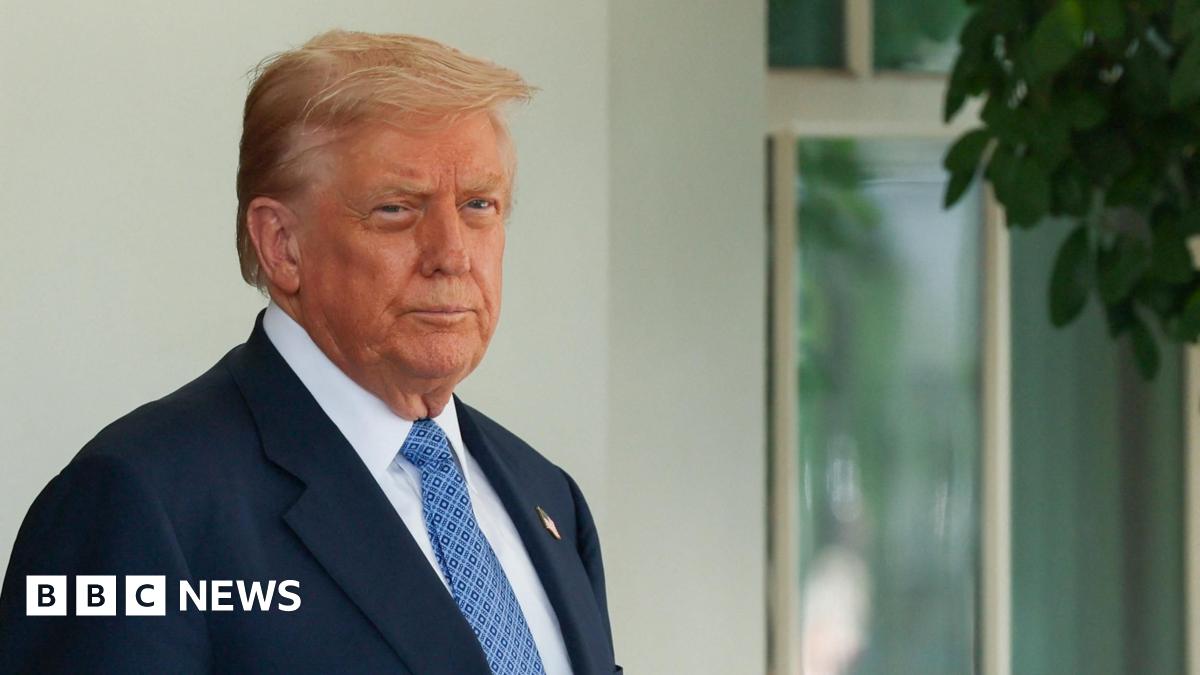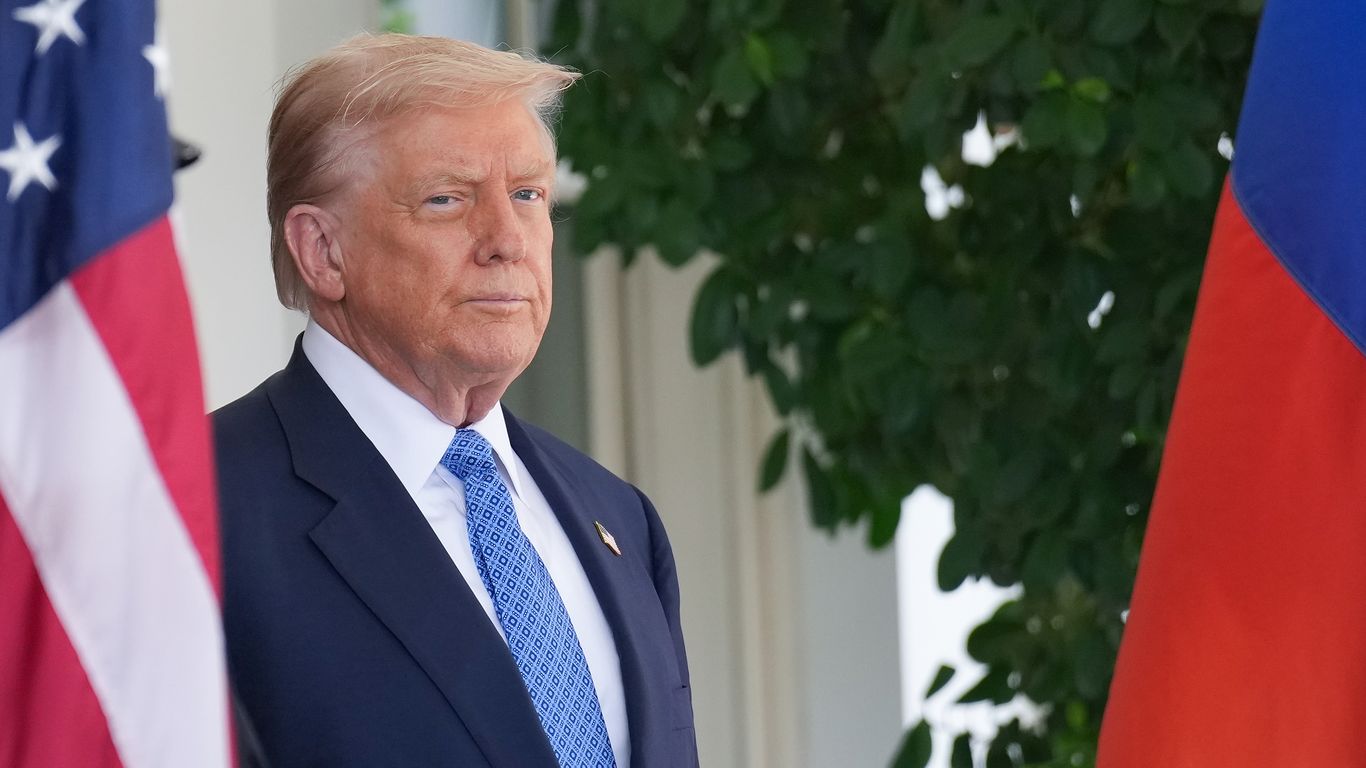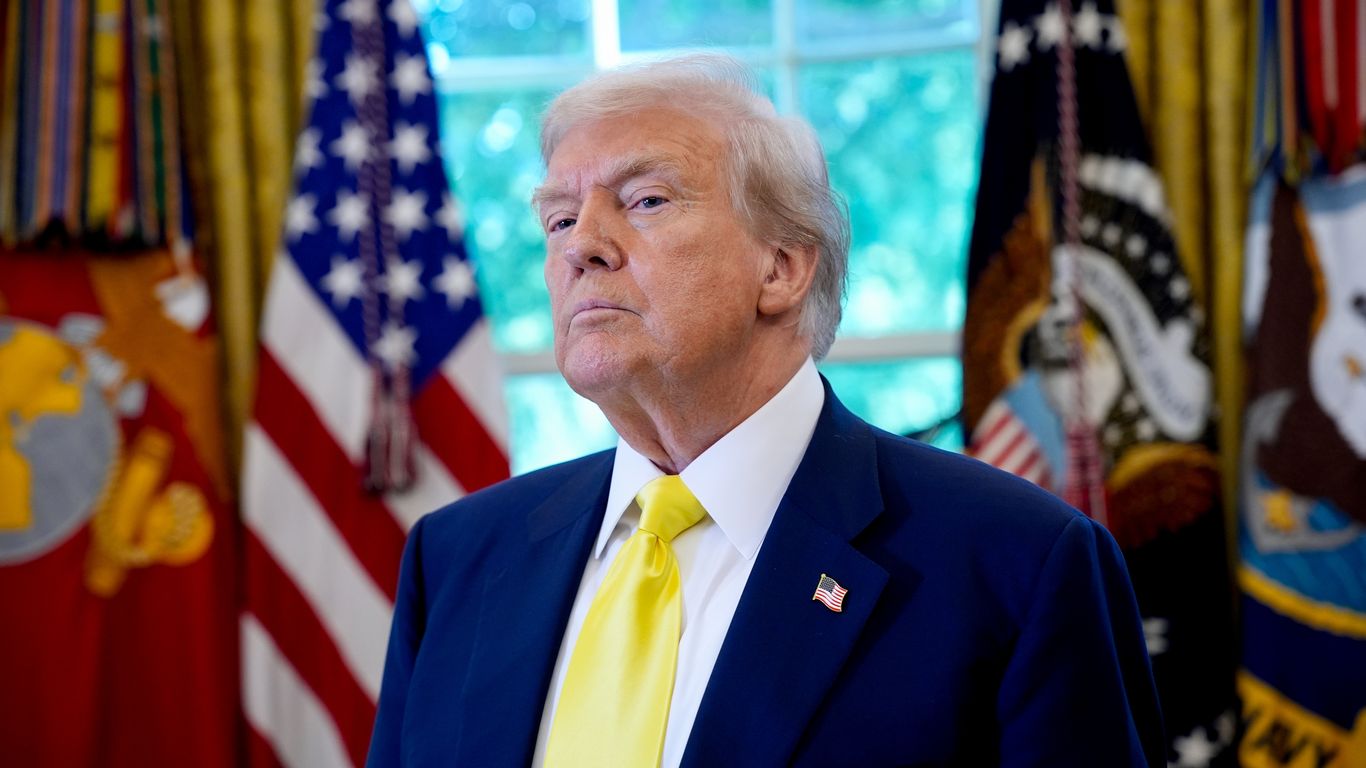Trump's Decision to Federalize DC Police Force Raises Safety Concerns

Introduction
President Donald Trump's decision to declare a crime emergency and federalize DC's police force has left the Metropolitan Police and federal agencies scrambling to figure out their roles and strategy. This unprecedented move has raised concerns and questions about the implications for the city's safety and security.
Challenges for Law Enforcement
The federalization of DC's police force has created a complex situation for law enforcement. With federal agencies taking on a larger role in crime control, the responsibilities and jurisdictions of local police are being redefined. The Metropolitan Police will now have to work closely with federal law enforcement to effectively combat crime in the city.
Impact on the Community
This move has also sparked controversy among community members. Some fear that the increased presence of federal agencies could lead to a militarization of the city and further strain relationships between law enforcement and the public. Others believe that this federal intervention could bring much-needed resources and support to combat crime in the nation's capital.
About the People Mentioned
Donald Trump
Donald John Trump, born June 14, 1946, in Queens, New York, is an American businessman, media personality, and politician. He graduated from the University of Pennsylvania’s Wharton School in 1968 with a degree in economics. In 1971, he took over his family’s real estate business, renaming it the Trump Organization, through which he expanded into building and managing skyscrapers, hotels, casinos, and golf courses. Trump gained widespread fame as the host of the reality TV show *The Apprentice* from 2004 to 2015, which helped establish his public persona as a successful entrepreneur. Trump entered politics as a Republican and was elected the 45th president of the United States, serving from 2017 to 2021. His presidency was marked by significant policy actions including tax cuts, deregulation, the appointment of three Supreme Court justices, renegotiation of trade agreements (notably replacing NAFTA with the USMCA), and a focus on immigration control including border wall expansion. He withdrew the U.S. from international agreements such as the Paris Climate Accord and the Iran nuclear deal, and engaged in a trade war with China. His administration’s response to the COVID-19 pandemic was criticized for downplaying the virus’s severity. Trump was impeached twice by the House of Representatives—first in 2019 for abuse of power and obstruction, and again in 2021 for incitement of insurrection—but was acquitted by the Senate both times. After losing the 2020 election to Joe Biden, Trump challenged the results, culminating in the January 6, 2021, Capitol riot. He remains a central figure in American politics, having won the 2024 presidential election and returned as the 47th president in 2025, continuing to promote policies aimed at economic growth, border security, and military strength[1][2][3][4].
About the Organizations Mentioned
Metropolitan Police
The **Metropolitan Police Service (MPS)**, commonly called the **Met Police** or simply the **Met**, is the primary territorial police force responsible for law enforcement and crime prevention within Greater London, excluding the City of London which is policed separately. Established in the 19th century, the Met is historically known as "Scotland Yard," referencing its original headquarters location. Today, it is headquartered at New Scotland Yard on the Victoria Embankment[1]. The Met's remit extends beyond conventional policing to specialised national roles including **counter-terrorism**, **protection of the monarch**, royal family, government officials, and high-profile figures across the UK. It also handles security for 164 foreign embassies, London’s major airports (Heathrow and London City), and oversees policing for thousands of public events and protests annually, reflecting London's status as a global city[1]. As the largest police force in the UK by officer numbers, the Met balances a relatively small geographic area—the Metropolitan Police District—with enormous complexity and high visibility operations. It operates under the leadership of the Commissioner of Police of the Metropolis, currently Sir Mark Rowley (since July 2022), who is directly accountable to the Mayor of London through the Mayor's Office for Policing and Crime (MOPAC), and also to the Home Office at the national level[1][2]. Organisationally, the Met is divided into five main directorates, each led by an Assistant Commissioner, covering Frontline Policing, Met Operations, Specialist Operations, and Professionalism, supported by civilian-led departments for digital technology, communications, and finance, emphasizing its integration of business and technology in modern policing[2]. Key achievements include pioneering counter-terrorism strategies, managing high-profile security operations, and implementing advanced digital and data technologies to enhance crime detection and prevention. The current Mayor’s Police and Crime Plan (2025-2029) prioritizes reducing violence, building safer communities, reforming














